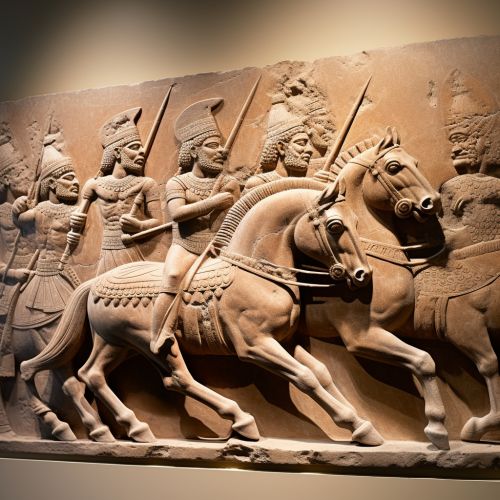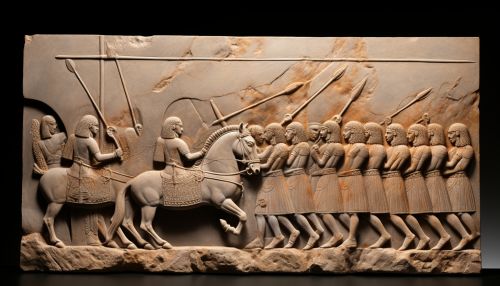Ashurbanipal
Early Life
Ashurbanipal, also known as Ashur-bani-apli, was born around 685 BC. He was the son of King Esarhaddon and the last strong ruler of the Neo-Assyrian Empire. His name, when translated, means "the god Ashur is the creator of an heir" and he was indeed the chosen heir of his father's throne.
Reign
Ashurbanipal ascended to the throne in 669 BC, following the death of his father. His reign was marked by military campaigns, cultural advancements, and the construction of a vast library. He was known as a warrior king, leading his troops into battle and expanding the empire's territories. His military campaigns extended the empire's reach into Egypt and the Arabian Peninsula.


His reign also saw significant cultural advancements. He was a patron of the arts and sciences, and under his rule, the empire saw a flourishing of literature, art, and architecture. He is perhaps best known for his library, the Library of Ashurbanipal, which was one of the largest and most significant libraries of the ancient world.
Library of Ashurbanipal
The Library of Ashurbanipal was a vast collection of texts, including literature, scientific works, and historical records. It was a testament to Ashurbanipal's commitment to learning and knowledge. The library was home to thousands of clay tablets, inscribed with cuneiform script. These tablets covered a wide range of topics, from astronomy and medicine to law and mythology.
Death and Legacy
Ashurbanipal died in 627 BC, marking the end of the Neo-Assyrian Empire's period of strength and expansion. His death led to a period of decline and instability, which eventually resulted in the fall of the empire. Despite this, Ashurbanipal's legacy lived on through his library, which has provided historians with a wealth of information about the ancient world.
